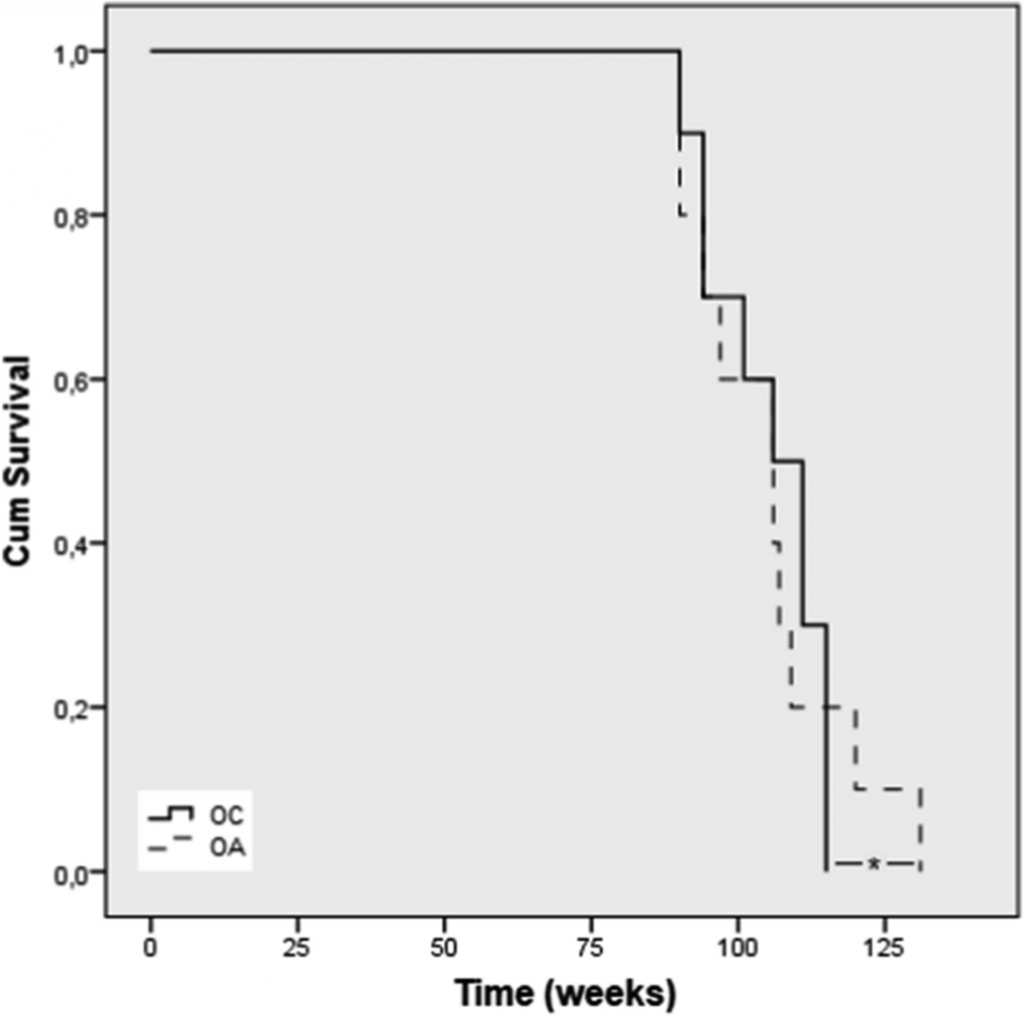Key Points:
- Old mice supplemented with Akkermansia muciniphila (AKK) for a month live longer.
- AKK treatment rejuvenates coordination and strength while alleviating anxiety.
- Treatment heightens the immune response and reduces inflammation and cellular (oxidative) stress.
Health maintenance arises through various bodily systems, all of which slowly deteriorate as we age. If these systems, including the nervous, endocrine (hormone), and immune system, can be sustained as we age, would we age more gracefully? One study looking at probiotic supplementation in mice points to the answer as yes.
The study, by scientists from the Complutense University of Madrid, published in Biogerontology, focused on elderly female mice supplemented with AKK, a probiotic – beneficial type of bacteria found naturally in the intestines. The researchers found that supplementing mice with AKK improved coordination, balance, and anxiety-like behaviors, which are normally negatively affected by age. Immune function and cellular stress were also improved following treatment. These improvements served to increase the lifespans of the probiotic-treated mice.
“Our data indicate that AKK [Akkermansia muciniphila] supplementation for a short period could be a good nutritional strategy to promote healthy longevity,” the investigators wrote.
Improved Longevity with Probiotic Treatment
Elderly mice (72 weeks old – approximately 65 years old in human years) were supplemented daily with AKK for one month. This led to an increase in lifespan. This increase in lifespan seemed to coalesce as a result of improvements in healthspan – the duration of life lived in good health, as will be described next.

By testing coordination and strength using behavioral tests, the researchers found that probiotic-supplemented mice have scores similar to younger, adult mice (aged 40 weeks – approximately 45 years old in human years), suggesting that AKK rejuvenates coordination and strength. Additionally, the treated mice display decreased anxiety-like behavior compared to the untreated old mice, as measured by more time spent in the open arms of an elevated maze.

Two underlying contributors to aging are inflammation and oxidative stress – damage caused to cellular components like DNA by reactive oxygen species. Inflammation and oxidative stress may be exacerbated by age-related immune system decline. It was found that AKK-treated mice have increased immune function, suggesting a reversal of this decline. Namely, the treated mice had immune responses similar to the younger, adult mice with similar levels of pro-inflammatory and anti-inflammatory molecules. Furthermore, the old, untreated mice had higher oxidative stress levels than the mice treated with AKK.
Can Probiotics Improve Longevity in Humans?
The results of this study show that supplementing old mice with a probiotic improves behaviors related to neuronal function, including coordination and balance. Previous studies have found similar results with other probiotics in rodent models, indicating that probiotics may help maintain our nervous system as we age. Indeed, other studies indicate that probiotics may also help with anxiety. The communication between gut bacteria (including probiotics) and the nervous, endocrine, and immune system may explain how probiotics affect inflammation, oxidative stress, and immunity.
The increase in healthspan and lifespan – longevity – seen with probiotic supplementation shown in these studies makes a strong case for taking daily probiotics to help with age-related concerns. The probiotic utilized in this study, Akkermansia mucciniphila, is available from online retailers, although a side-by-side study would need to be conducted to tease out the differences between this particular bacterial strain and others. Most probiotics can be taken with minimal side effects, although as always, check with your doctor before starting any new medications or supplements.